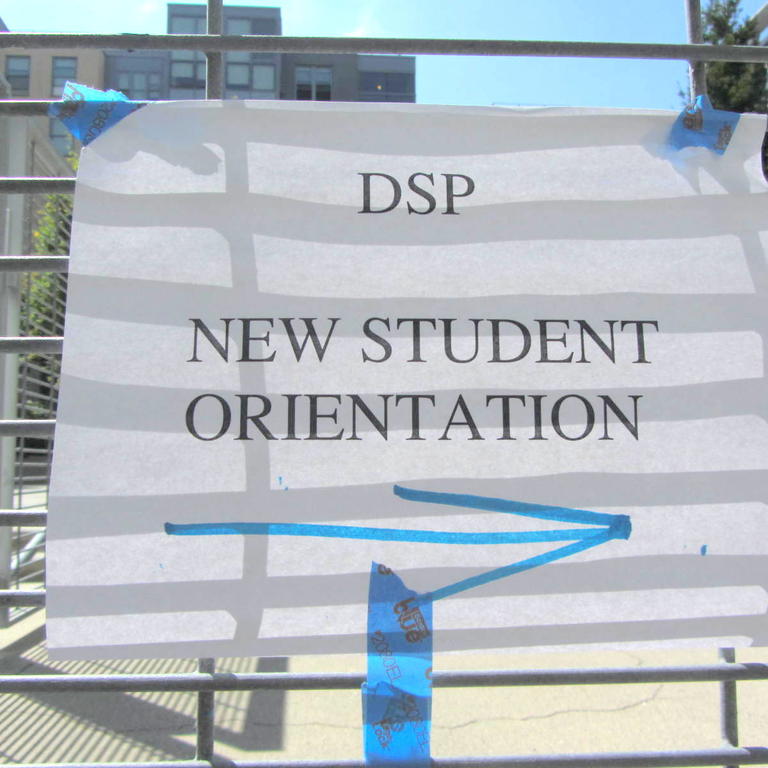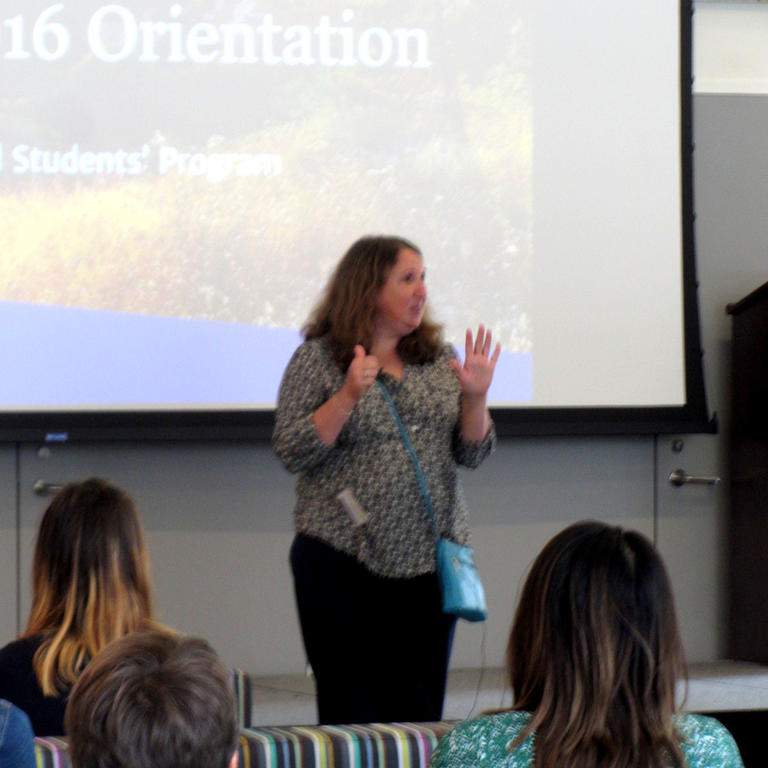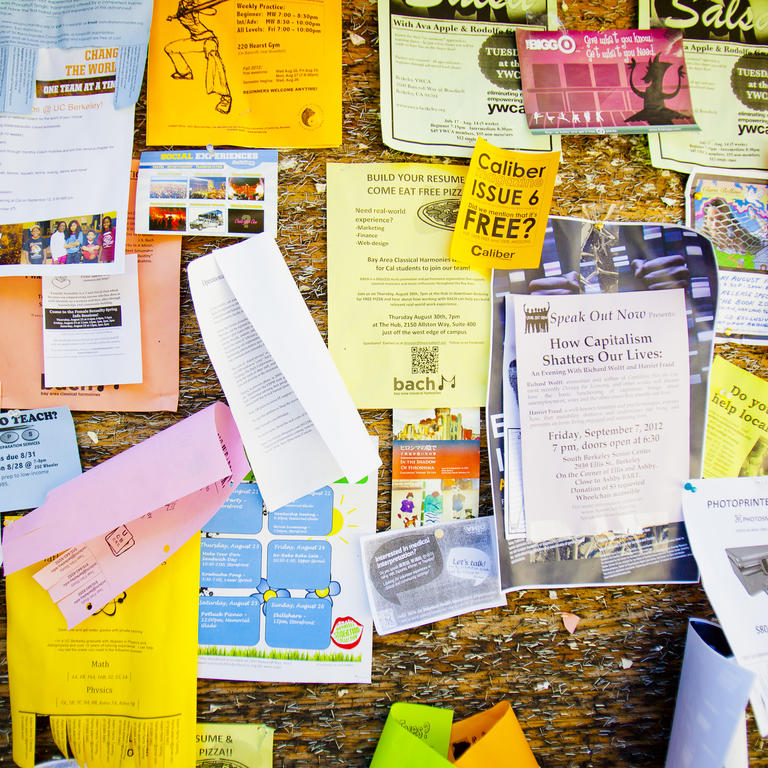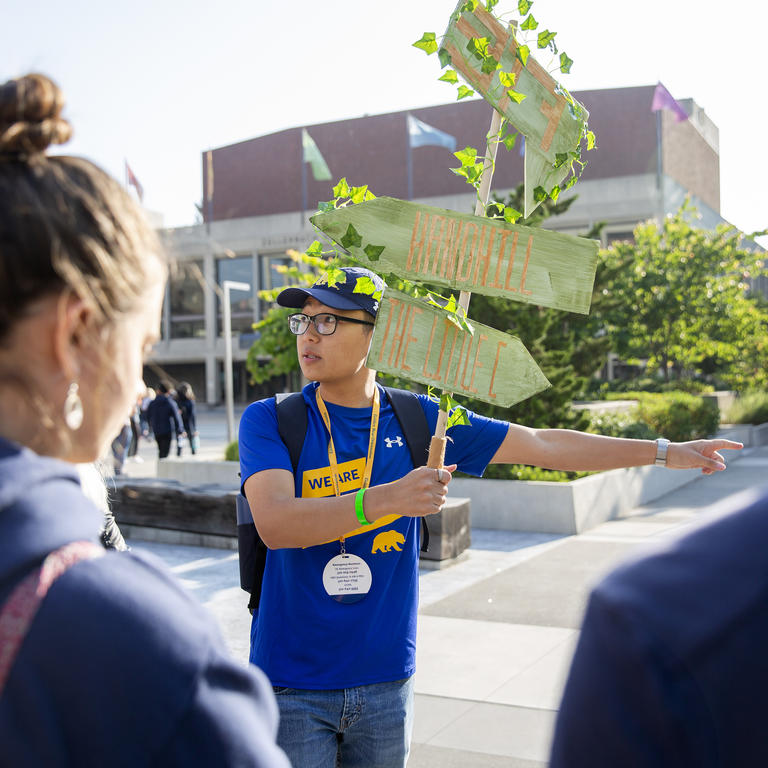Who Participates in DSP?
DSP currently serves more than 5,500 undergraduate and graduate students enrolled at UC Berkeley–just over 12% of students. Some students have life-long disability identities, and some students have recently-acquired or recently-identified disabilities. As of April 2025, the community of students DSP served included students with the following disability identities:
|
Primary Disability Identity |
Number Active in DSP |
|
Psychological Disability |
2513 |
|
Attention Deficit Disorder/ADHD |
1540 |
|
Chronic Health Condition |
490 |
|
Mobility Disability |
335 |
|
Learning Disability |
272 |
|
Neurological/Nervous System |
243 |
|
Autism |
143 |
|
Deaf and Hard of Hearing |
64 |
|
Blind and Vision Disability |
63 |
|
Speech/Communication Disorder |
7 |
|
Other |
10 |
|
Total |
5680 |
|
Total of students with two or more disabilities |
2223 |
The students who comprise the UC Berkeley disability community are a diverse group, as illustrated by the following enrollment data for Spring 2024:
|
Demographic group |
% undergraduates in DSP |
% undergraduates at UCB |
|
Underrepresented minority |
32.8% |
25.8% |
|
Foster youth |
1.6% |
0.5% |
|
LGBQ+ |
29.4% |
18% |
|
Transgender/Nonbinary |
5% |
2.4% |
|
EOP eligible |
50.9% |
44.5% |
|
Low income families |
33.6% |
27.3% |
|
Have dependents |
11.6% |
4.6% |
|
First-generation college |
31.1% |
28.9% |
Students with disabilities are an integral part of the scholarly and diversity fabric of the school, and we work to support students with disabilities in finding an academic and cultural home at UC Berkeley.
How We Support Students
DSP seeks to ensure that students with disabilities have equal access to their academic programs at UC Berkeley. We do this by considering the impact students' disabilities have in the context of the learning environment at Berkeley and identifying barriers that students may encounter. We then determine accommodations that serve to remove or mitigate such barriers.
In addition to determining classroom practices and environments that may require modification for students with disabilities to have equal access, our office also provides needed Auxiliary Services to support students' equal participation in the learning environment. These services are individualized to each student's unique disability identity, experience, and program of study. Services may include technology to support independent note taking, alternative formats of course texts, real-time course captioning, and specialized exam settings.
All students who are active in the Disabled Students' Program are assigned a Disability Specialist they can contact with questions or concerns. Disability Specialists approve students’ accommodations so that students can request that Letters of Accommodation (LOAs) be sent to their instructors. LOAs protect students' access to the classroom by specifying the services and supports that they require. Disability Specialists can also assist students as they communicate with their instructors, connect with campus resources, and develop personal strategies for disability management.
How Do I Connect with DSP?
If you would like to apply for disability accommodations for the first time at UC Berkeley, you can do so online. If you are not sure about applying for accommodations, or if you have questions you would like to discuss before applying, please email DSP to request an informational meeting with a Disability Specialist. If you are already approved for accommodations and active in DSP, you can find the name and email of your assigned Disability Specialist in the lower left-hand side of the text in your account in the AIM portal




